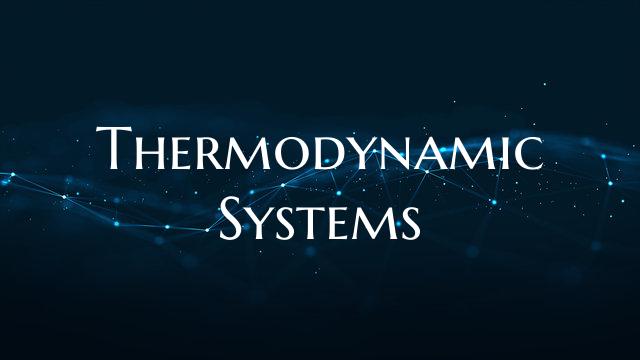Thermodynamic Systems
Thermodynamic Systems
Thermodynamic systems play a crucial role in various engineering disciplines, providing a foundational framework for understanding energy transfer and conversion. These systems are governed by the laws of thermodynamics, which set the boundaries for energy interactions within a closed system. Understanding thermodynamic systems is essential for designing efficient processes and optimizing energy utilization in various applications.
At the core of thermodynamic systems is the concept of energy transfer, which can manifest as heat or work. These systems can be classified based on their boundaries and the type of interactions they have with their surroundings. Common types of thermodynamic systems include closed systems, open systems, and isolated systems, each with distinct characteristics and behaviors.
Closed systems, also known as control volumes, allow for energy transfer in the form of heat and work but do not permit the exchange of matter with the surroundings. This type of system is commonly encountered in engineering applications such as engines and refrigeration systems, where energy is transferred to perform mechanical work or heat exchange.
Open systems, on the other hand, allow for both energy and matter transfer across their boundaries. These systems are versatile and can be found in natural processes like environmental systems or industrial applications such as chemical reactors. Understanding the dynamics of open systems is essential for predicting the behavior of complex processes where mass transfer plays a significant role.
Isolated systems represent an idealized scenario where no energy or matter interactions occur with the surroundings. While isolated systems are rare in practice, they serve as a useful theoretical concept for understanding energy conservation principles and the ideal limits of thermodynamic processes.
The study of thermodynamic systems is fundamental to fields such as mechanical engineering, chemical engineering, and physics, providing a common language for analyzing and optimizing energy conversion processes. By applying the principles of thermodynamics to real-world systems, engineers and scientists can design more efficient machines, improve energy sustainability, and drive innovation in a wide range of applications.
In conclusion, thermodynamic systems form the basis of energy analysis and utilization across engineering disciplines. Understanding the behavior of these systems is essential for maximizing efficiency, optimizing performance, and solving complex challenges in energy conversion and utilization. By delving into the principles of thermodynamics, engineers and researchers can unlock new possibilities for sustainable energy technologies and create a more efficient world.

